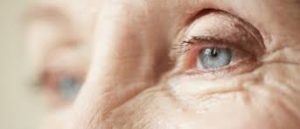
A cataract is an opacification (or clouding) of the eye’s natural lens, which can cause difficulty. Cataracts are a common issue with older adults, smokers, individuals with previous eye injuries or those who have spent significant time in the sun. Some common symptoms include blurred vision, glare and difficulty reading. In most cases, cataracts progress very slowly and surgery is not immediately necessary. Unfortunately, there is no way of stopping the progression of cataracts and surgery is currently the only form of treatment that works.
The good news is that cataract surgery has become an extremely routine treatment for cataracts. While the surgical procedure itself typically takes 10 minutes, a complete recovery can take about four weeks or a little more, depending on the individual. The vast majority of cataract patients have no complications during or following the procedure and many patients even report having clearer vision that before they had cataracts. Still, you may be wondering about the effects that cataracts can have on your eyesight.
How Bad Do Cataracts Hurt?
The first thing you may want to know about cataracts is whether or not they are painful. Surprisingly, the answer is generally no. While clouded vision may cause you to strain your eyes, cataracts themselves are not painful. If you are delaying cataract treatment because you have not experienced any pain, you should schedule an appointment with your eye doctor immediately.

How Will Cataracts Change The Way I See?
Normally, light is able to enter and pass through your eye’s natural lens, which focuses the light into an image for your retina to relay to your brain. With a cataract, the light is unable to enter and pass through your lens, causing images to become blurry. You may also experience a glare, or sensitivity to bright lights. Glare can cause difficulty seeing in sunlight, bright indoor lights or even when driving at night. Some patients even report seeing double while just one eye is open. Still others report that their vision slowly becomes discolored as their cataracts progress. This may look like a brown or yellowish tint or you may have trouble distinguishing between blues and purples.
While each of these symptoms are commonly associated with cataracts, they may also be signs of other eye conditions. If you are experiencing any of the symptoms above, tell your eye doctor and trust them to make an official diagnosis.
Will I Go Blind With Cataracts?
If you receive treatment for your cataracts, your vision will likely be as good if not better than before you had cataracts. However, if cataracts are left untreated, cataracts will cause a steady loss of vision that can lead to legal blindness or even complete loss of vision. With today’s availability of treatment, blindness should not be an effect of cataracts. By regularly visiting your optometrist, you should be able to stay well ahead of the progression of cataracts and establish a timeline for treatment and recovery.
Does Louisiana Eye & Laser Treat Cataracts?
Of course we do! At Louisiana Eye & Laser we have been treating cataracts patients for over 40 years. Our professional staff, world-class technology and 13 convenient locations across the state make us the number one treatment option in Louisiana. Whether it’s cataract treatment, a regular eye exam or another eye care need, Louisiana Eye & Laser is here to serve you!




